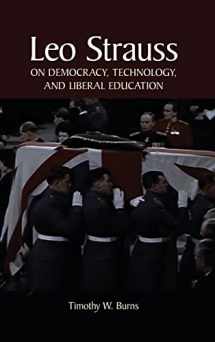
Leo Strauss on Modern Democracy, Technology, and Liberal Education (SUNY Series in the Thought and Legacy of Leo Strauss)
Book details
Summary
Description
Liberal democracy is today under unprecedented attack from both the left and the right. Offering a fresh and penetrating examination of how Leo Strauss understood the emergence of liberal democracy and what is necessary to sustain and elevate it, Leo Strauss on Democracy, Technology, and Liberal Education explores Strauss' view of the intimate (and troubling) relation between the philosophic promotion of liberal democracy and the turn to the modern scientific-technological project of the "conquest of nature." Timothy W. Burns explicates the political reasoning behind Strauss' recommendation of reminders of genuine political greatness within democracy over and against the failure of nihilistic youth to recognize it. Elucidating what Strauss envisaged by a liberally-educated sub-political or cultural-level aristocracy-one that could elevate and sustain liberal democracy-and the roles that both philosophy and divine-law traditions should have in that education, Burns also lays out Strauss' frequent (though often tacit) engagement with the thought of Heidegger on these issues.


We would LOVE it if you could help us and other readers by reviewing the book
Book review



